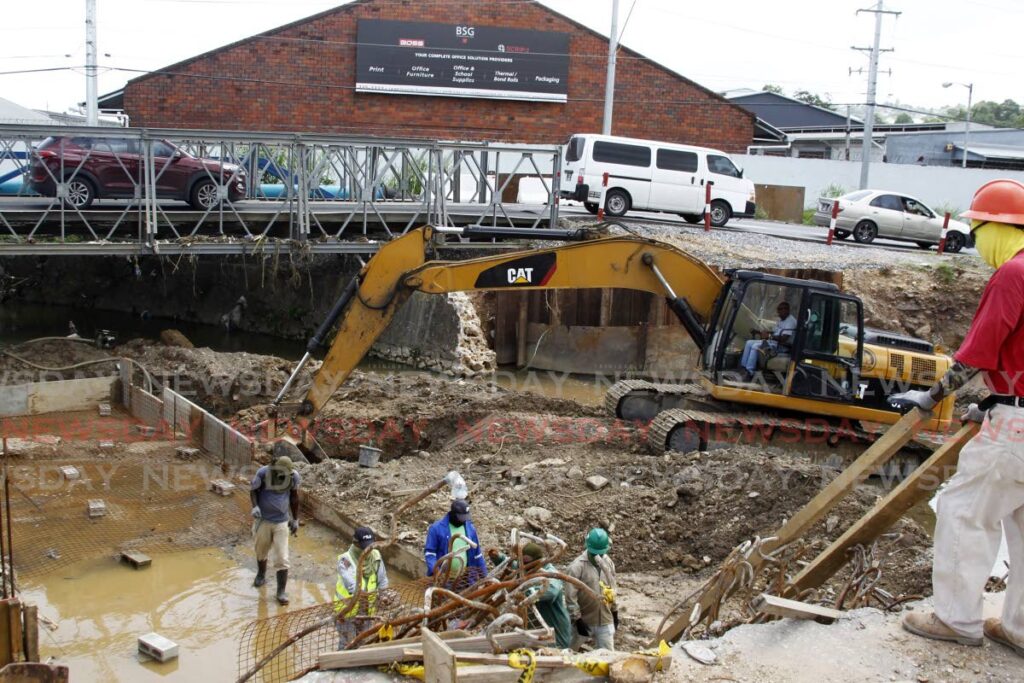Finding solutions to engineering challenges

CHRIS MAHARAJ AND MARLEEN LORD-LEWIS
The following is the first in a series of joint articles by the Association of Professional Engineers of Trinidad and Tobago (APETT) and the National Institute of Higher Education, Research, Science and Technology (Niherst).
Through a memorandum of cooperation, the Association of Professional Engineers of Trinidad and Tobago (APETT) is collaborating with the National Institute of Higher Education, Research, Science and Technology (Niherst) to deliver a public webinar series titled: Addressing engineering challenges nationally and in the region.
The intent of the webinar series is to engage the public’s interest and comments as representatives from business/industry, government, and academia discuss challenges of national and regional importance.
Our nation has a wealth of knowledge and skills that we can offer at a regional level, for example to our Caricom neighbours. The structure of each webinar will most likely consist of an educational component followed by a panel discussion to which the live audience will have their opportunity to voice their comments and questions.
The interplay between business/industry, government, and academia forms the triple helix model of innovation that serves to foster economic and social development by facilitating the knowledge economy and society. Engineering challenges exist in the world because the solutions are difficult and often arise through an innovation-oriented approach.
The first step in finding solutions is to bring to the table business/industry, government, and academic representatives for a given challenge to improve the process of communication and foster the necessary collaborations. The public’s role is extremely important to obtain feedback on proposed solutions.
The communication between representatives, and with the public in these webinars must be maintained at professional and constructive levels.
Based on the results of a January 2022 survey sent to the APETT membership, the following were the engineering challenges identified by approximately 50 members who responded:
Natural disaster (earthquake and hurricane) management; road and bridge maintenance, traffic management and public transport optimisation; infrastructural development; river recreation development; mining management; application of optimal standards in construction, landslip and coastal erosion management; deep foundation systems; sustainable development; drainage and flood mitigation; renewable energy development; workforce automation; internet connectivity; fire protection; cyber security; electricity reliability; productivity improvements across all sectors; increasing manufacturing capacity; value engineering; service industry standards; sustainable materials; plant maintenance and management; heating, ventilation and cooling (HVAC); measuring policy performance and effectiveness; pollution; recycling; environmental protection; water and wastewater management; and availability of data for analysis (rainfall, streamflow, tide, power).
It is recognised that some challenges (renewable energy and recycling, for example) are intertwined with global concerns such as climate change and thus may be more of a priority at this juncture. Many of the specific challenges listed (landslip and coastal erosion management) also exist at the regional level in other small island developing states and thus we can help support the region when we resolve these challenges at the national level. During the covid19 period, most of the population quickly adapted to online education and virtual meetings. There was a quick transition from seminars to webinars. In our experience, webinars have the potential to be just as interactive as seminars.
Niherst, as the national leader in science, technology and innovation (STI), is well equipped in the execution of online engagement and is keen to utilise its know-how in collaboration with APETT to jointly address societal pain points. Notably, this collaboration will highlight the importance of the "stream" approach – science, technology, research, engineering, arts and mathematics) to problem-solving.
The APETT Council, through the division (civil, mechanical/industrial, electrical, and chemical) and Tobago Chapter chairs, will begin the process of determining the engineering challenges for discussion for our first webinars in the coming months for this series.
The intended collaboration between Niherst and APETT in this regard will help to optimise the quality and interactivity of this webinar series.
APETT consists of approximately 1,100 members. Its mission is: A learned society of professional engineers dedicated to the development of engineers and the engineering profession. The association promotes the highest standards of professional practice and stimulates awareness of technology and the role of the engineer in society.
Niherst’s mission is: To stimulate sustainable national capability and capacity in science, technology, innovation, and technopreneurship through insightful research and relevant programmes.


Comments
"Finding solutions to engineering challenges"